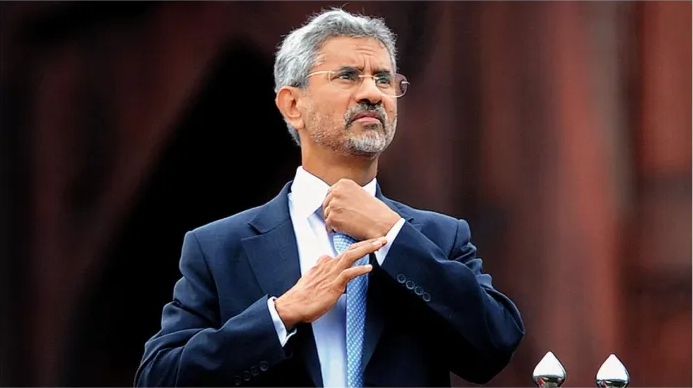World Affairs by Unacademy
The Global Times, often regarded as a mouthpiece of the Chinese government, recently published an unusual article accusing Dr. S. Jaishankar, India’s External Affairs Minister, of being the reason for the stagnation in India-China relations. Though the article was mysteriously deleted shortly after publication, it caught the attention of global political analysts due to its implications and the timing. It’s worth noting that anything published in Global Times usually reflects the views of the Chinese Communist Party, making this development significant.
The Context: Diplomatic Tensions
India and China have been locked in a standoff along the Line of Actual Control (LAC) for almost five years, with tensions escalating since 2020’s Galwan Valley clash. Recently, news surfaced that both countries are moving towards resolving the LAC standoff, with China hinting at the possibility of withdrawing troops, provided there is a meeting between Indian Prime Minister Narendra Modi and Chinese President Xi Jinping during the G20 or BRICS summits.
From a geopolitical perspective, some analysts view this as a setback for Xi Jinping. China’s military buildup on India’s border was meant to pressure India, but after years of confrontation, it appears China is now keen on ending the standoff without achieving much.
Why Target Dr. S. Jaishankar?
The article in Global Times specifically singles out Dr. Jaishankar, suggesting that his diplomatic tactics are blocking progress. Dr. Jaishankar has been firm in his stance that border issues must be resolved before any meaningful engagement with China can take place, particularly in economic cooperation. This firm and principled stance has clearly frustrated China, which appears to be trying to apply diplomatic pressure by targeting India’s top diplomat.
The article’s quick removal raises eyebrows. It was archived before deletion, allowing analysts to dissect it. Written by a mysterious figure, Wang Deming, the article slanders Dr. Jaishankar’s approach to diplomacy, labeling him as having an “envy” and “hatred” towards China.
A Geopolitical Tactic?
This isn’t the first time China has employed such strategies. By publicly targeting Jaishankar and critiquing India’s foreign policy, China is likely trying to sway public opinion and create internal discord in India. It’s an attempt to paint Jaishankar as an obstacle to India’s growth by accusing him of undermining potential economic cooperation between the two nations.
However, India’s policy toward China is largely shaped by national interests and public sentiment, which, in recent years, has shifted toward viewing China with skepticism. India’s firm demand for disengagement at the LAC is reflective of this broader national mood. As recent surveys suggest, India’s unfavorable view of China mirrors global sentiment, with countries like the U.S., Canada, and even Mexico sharing concerns about China’s economic practices and expansionist policies.
China’s Diplomatic Pressure and Strategic Setbacks
China finds itself in a precarious position. Its aggressive actions at the LAC have not only soured relations with India but also triggered a reevaluation of its policies by global powers. Dr. Jaishankar’s steadfast approach, which emphasizes border resolution as a prerequisite for normalization, reflects India’s resolve to prioritize national security.
China, on the other hand, appears to be seeking a way out of this prolonged standoff, which has strained its resources. Stationing troops in Tibet’s high-altitude regions has proven to be a logistical challenge, especially for a conscript army unaccustomed to such harsh conditions. This makes it more likely that China is eager to de-escalate, particularly as it shifts focus to other potential conflicts, like Taiwan.
Conclusion: The Bigger Picture
The deleted Global Times article offers a glimpse into China’s frustration with India’s diplomatic strategy. Dr. Jaishankar has become a symbol of India’s new foreign policy, which is more assertive and pragmatic. By holding China accountable for its actions at the border, Jaishankar is ensuring that India’s national interests are protected.
China’s efforts to influence public opinion in India through such articles are unlikely to succeed, given the growing awareness and skepticism about China’s intentions. For now, the ball is in China’s court: disengage at the border and normalize relations, or face continued diplomatic resistance from India.
As India and China navigate these delicate waters, it is clear that Dr. Jaishankar’s leadership will remain critical in shaping the future trajectory of Indo-China relations.


